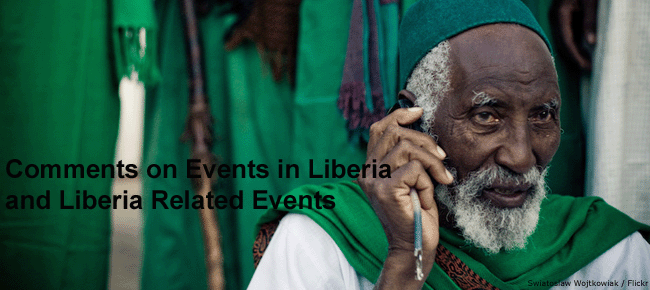Tuesday, January 18
Turmoil in Tunisia
Freedom! Democracy! Events in Tunisia show that not only Presidents rule in Africa (see my January 4 post) but also people in the streets have a chance to decide on the future of their countries. I was touched by the recent revolution in Tunisia. This country has a special place in my heart since I first visited it nearly forty years ago, in 1972. President Habib Bourguiba at the time ruled the country. He was the country's first president and his presidency was characterized by a pro-Western stance, the liberalization of the economy and a number of progressive reforms especially in the areas of education and women's rights. In 1975 he became President-for-life, but in 1987 his just appointed Prime Minister deposed him. President Habib Bourguiba had just celebrated his 84th birthday but was seriously ill, suffering from Alzheimer's disease. Why for God's sake is it that some Presidents don't want to give up and want to hold on power even when they are physically and mentally no longer fit??
His successor's name was Zine El Abidine Ben Ali aka Ben Ali, Tunisia's second President and last week ousted by people in the streets who voted with their feet. It is a shame that after being president for more than 23 years, he did not feel the responsibility to stay and account for his deeds and/or misdeeds.
Something else comes to my mind. Tunisia was until recently considered one of the politically most stable countries in Africa though in the Economist's 2010 Democratic Index it only ranks # 144 out of 167 classified countries. I have lived in a number of 'politically very stable' African countries, in particular Liberia and Burkina Faso, formerly called Upper Volta. In 1980 I witnessed the second coup in Liberia's history whereas I went through three coups d'état in Ouagadougou, the capital of nowadays Burkina Faso, in 1980-1983: Colonel Saye Zerbo (1980), Jean-Baptiste Ouedraogo (1982) and Thomas Sankara (1983). The latter seized power in a bloody coup together with his life-old friend, Blaise Compaore, who four years later betrayed him and became president of this poor, landlocked country. Blaise Compaore was re-elected in a landslide victory in November last year.
What does all this teach us? I think of three conclusions and lessons.
First, don't be misled by the label 'politically stable'. Unfortunately, my experience tells me that most reports on 'politically stable countries' come from people who hardly know these countries.
The following two conclusions particularly apply to presidents-in-power and their political advisors. 'Don't stay too long in power. Prepare for your successor.', is one of them. The cases of President Houphouet-Boigny of Ivory Coast (1960-1993) and of President Mobutu Sese Seko of nowadays the Democratic Repulic of Congo (DRC), formerly known as Zaïre (1965-1998) , very well illustrate the validity of this conclusion. The other conclusion and lesson is: 'Don't misjudge people but be aware of the signals coming from society.'
I was in Liberia and in Upper Volta during these events and coups, and can assure you that in both countries the regime change was not a complete surprise. As early as 1947 the American author Raymond Leslie Buell had predicted the collapse of Americo-Liberian rule in Liberia in his book 'Liberia: A Century of Survival 1847 - 1947' whereas in August 1983 the power struggle between potential plotters was evident. A few days before the coup I was even warned by a Burkinabé colleague with good connections in the military that 'since something is going to happen this weekend, it would be better to stay home.' Eventually, Captain Thomas Sankara was the first to strike and staged his coup on Thursday night..
What does this say about Liberia?
I tend to say to 'Ellen': 'Don't push your luck'. She has already done a tremendous lot for Liberia and much remains to be done. It will take more than two Administrations to achieve this. I sincerily hope that Liberia will have a stable government for the next few years - and certainly 'Ellen' will have a very important role to play in achieving it - but (recent) history teaches us that we have to listen to the voice of the people in the streets before it is too late!
2011/01/17
Subscribe to:
Post Comments (Atom)


No comments:
Post a Comment